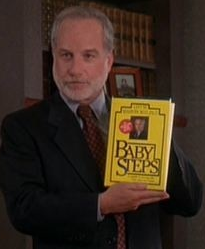Senate hearing holds state in denial on mental health parity
By Paayal Zaveri
SACRAMENTO — At hearings on June 27 and July 1, California state senators put their stethoscopes to expanding mandated mental health coverage in insurance policies. In an issue complicated by the ongoing implementation of the federal Affordable Care Act, or Obamacare, reform could increase insurance rates.
I attended the Senate Select Committee on Mental Health hearings on June 27 and July 1. State Sen. Jim Beall, D-Campbell, charged that insurance companies are continually violating state and federal parity laws, which require that mental health be covered equally with physical health. The hearings discussed future parity compliance with laws already enacted.
As a solution, he advanced his bill, SB 22. It would require greater compliance with the federal and state mental health parity laws. And it would require every health care plan to submit an annual compliance report to the Department of Managed Health Care. Every insurer also would submit a report to the California Department of Insurance.
“We often put statutes into law and think the job is done but the work only begins with the implementation,” said state Sen. Mark Leno, D-San Francisco.
Federal and state laws
The first part of the hearing on June 27 explained the difference between the federal and state parity laws. In 2008, the U.S. Congress passed the Mental Health Parity and Addiction Equity Act. It went into effect in 2010.
“The act is a great step forward in a decades-long fight to end insurance discrimination against those seeking treatment for mental heath and substance abuse disorders,” Beall said. “The law requires insurers to cover mental health and physical health equally.”
The California Mental Health Parity Law also requires health plans to provide equal benefits for mental and physical health. And it aims to eliminate obstacles, such as higher co-payments and limits on the number of benefits provided for mental health.
The hearing reviewed differences between the state and federal laws. California Insurance Commissioner Dave Jones testified that a key difference is the state parity law affects small group insurance policies in ways that the federal act cannot. “It establishes a parity mandate in a way that differs from the federal act,” he said.
Federal law and Obamacare
The July 1 hearing featured U.S. Rep. Patrick Kennedy, D-R.I. He said the Obamacare reforms make it even more important to include mental health services under health plans.
“People should not have to fight twice,” Kennedy said. “Once for their illness and once for mental health treatment. This is not a special interest issue, it is an issue for every single American.” Kennedy said SB 22 would set a standard for other states to improve transparency and accountability in regard to compliance with mental health parity laws.
Obamacare expands on the 2008 health act and will increase access to mental health services, according to the U.S. Department of Health and Human Services. Mental Health and substance abuse disorders fall under one of the 10 categories that require coverage.
Costs
But medical care isn’t free. More mandates mean higher costs to insurance companies. The cost is passed on to employers, and ultimately to employees.
California currently mandates 60 types of coverage and the federal government an additional 10, according to a study by the California Health Benefits review program. State law includes 10 mental-health mandates. The study notes, “In addition to these state-level benefit mandates, the federal Mental Health Parity and Addition Equity Act of 2008 requires that if a group plan or policy covers mental health, it must do so at parity with coverage for medical and surgical benefits.”
Among the 50 states, Rhode Island and Virginia impose the most mandates at 70; while Idaho’s 13 are the least, according to a study conducted by the Council for Affordable Health Insurance in 2011.
The study concluded:
“Most mandates, when considered individually, raise premiums by a very small amount, usually less than one percent. This small increase is deceiving when viewed in isolation and has resulted in an abundance of mandate legislation. Today, the majority of states have more than 40 mandates on their books, some have more than 60, and the accumulated impact of those dozens of small increases has made health insurance unaffordable for many Americans.”
Also at the June 27 hearing, Shawn Martin from the Legislative Analyst’s Office testified that clarifying the 2008 health act is needed to implement mental health policy. He said these areas need to be cleared up:
* Classification of inpatient and outpatient treatments;
* Non-quantitative treatment limitations;
* Qualitative treatment differences, including how to apply the 2008 federal act; as well as the act’s broader reach under Obamacare.
State legislation: SB 22
Discussion then turned to SB 22. “We believe the bill will assist our department in getting additional information upon which we can make appropriate regulatory decisions about compliance,” Jones said. “It’s a bill that would make sure health insurers and plans would routinely report on compliance.”
Jones said the DMHC would need additional resources and funding to process the annual reports. The analysis from the Assembly Health Committee found SB 22 would impose a one-time cost of $190,000 to the DMHC and $160,000 to the CDI. In addition, the ongoing cost of enforcement and regulation would be $180,000 to the DHMC and $90,000 to the CDI.
The added costs raised the blood pressure of the California Association of Health Plans and the Association of California Life and Health Insurance Companies. They did not testify at the Senate Select committee on Mental Health hearings.
But CAHP claimed in a statement released on June 18 that SB 22 would boost DHMC administrative costs; and the DHMC already has the authority to review health plan compliance with the state and federal parity laws. Therefore, SB 22 is unnecessary.
Nicholas Louizos, CAHP’s director of legislative affairs, said in the June 18 statement that SB 22 would hinder CAHP members’ Obamacare implementation and raise costs. “We must oppose any bills that disrupt that work or place new regulatory or administrative costs on our members at a time when they are preparing to cover millions of newly eligible individuals through Medicaid Expansion or the new insurance exchange,” Louizos said.
And according to the Assembly Committee on Health bill analysis, “CAHP notes that DMHC currently has authority to conduct routine medical surveys that focus on access and availability of services, quality management, utilization management, grievances and other issues. CAHP argues that, if those surveys indicate correction is need, DMHC will note deficiencies and issue progress reports on the status of the initial findings.”
SB 22 support comes from AARP California, the American Academy of Pediatrics-California District IX, the California Board of Behavioral Sciences, Health Access California, the Latino Coalition for a Healthy California, the National Association of Social Workers-California Chapter and the Drug Policy Alliance.
Opponents include the Association of California Life and Health Insurance Companies and the California Association of Health Plans.
SB 22 passed the full Senate on May 29. It passed the Assembly Committee on Health on June 25 and was re-referred to the Assembly Appropriations committee.
Related Articles
Will ferrets finally be free?
“Ah, nice marmot,” the Dude says in “The Big Lebowski” just before the nihilists dump it into the tub while he’s
Gov. Brown ‘saves’ sriracha
From the looks of it, the sriracha scandal is over, thanks to Gov. Jerry Brown. Dig deeper, however, and the sudden
AB 10 would boost CA minimum wage
SACRAMENTO — Obamacare is forcing businesses to slash the working hours of many employees below 30 hours a week. But the





